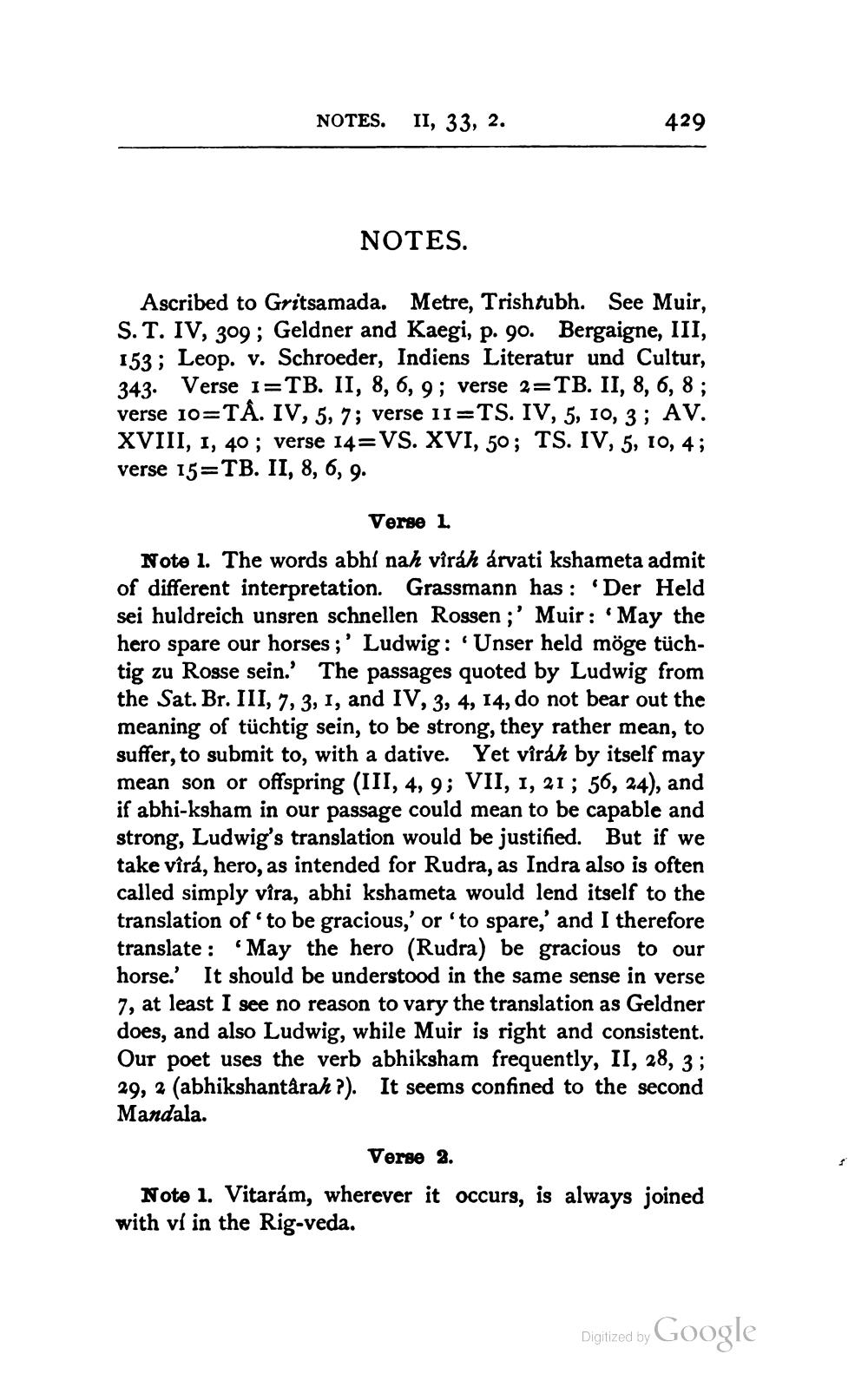________________
NOTES. II, 33, 2.
429
NOTES.
Ascribed to Gritsamada. Metre, Trishtubh. See Muir, S. T. IV, 309; Geldner and Kaegi, p. 90. Bergaigne, III, 153; Leop. v. Schroeder, Indiens Literatur und Cultur, 343. Verse 1=TB. II, 8, 6, 9; verse 2=TB. II, 8, 6, 8 ; verse 10=TÅ. IV, 5, 7; verse 11 =TS. IV, 5, 10, 3; AV. XVIII, 1, 40; verse 14=VS. XVI, 50 ; TS. IV, 5, 10, 4; verse 15=TB. II, 8, 6, 9.
Verse 1
Note 1. The words abhi nah viráh arvati kshameta admit of different interpretation. Grassmann has : 'Der Held sei huldreich unsren schnellen Rossen;' Muir : May the hero spare our horses ;' Ludwig: 'Unser held möge tüchtig zu Rosse sein.' The passages quoted by Ludwig from the Sat. Br. III, 7, 3, 1, and IV, 3, 4, 14, do not bear out the meaning of tüchtig sein, to be strong, they rather mean, to suffer, to submit to, with a dative. Yet viráh by itself may mean son or offspring (III, 4, 9; VII, 1, 21; 56, 24), and if abhi-ksham in our passage could mean to be capable and strong, Ludwig's translation would be justified. But if we take vîrá, hero, as intended for Rudra, as Indra also is often called simply vira, abhi kshameta would lend itself to the translation of to be gracious,' or 'to spare,' and I therefore translate : "May the hero (Rudra) be gracious to our horse.' It should be understood in the same sense in verse 7, at least I see no reason to vary the translation as Geldner does, and also Ludwig, while Muir is right and consistent. Our poet uses the verb abhiksham frequently, II, 28, 3; 29, 2 (abhikshantarah ?). It seems confined to the second Mandala.
Verse 2. Note 1. Vitarám, wherever it occurs, is always joined with ví in the Rig-veda.
Digitized by
Digized by Google




